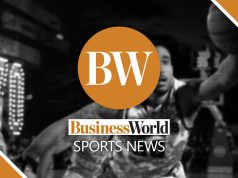Assuming everything goes according to plan, the United States Professional Golfers Association Tour will be holding the Charles Schwab Challenge in June, the country’s first full-field sporting event since the coronavirus disease 2019 pandemic shut down organized tournaments in March. The catch, of course, is that “everything” falling into place seems farfetched at best under these circumstances. For all the inherent advantages golf offers in terms of implementing social-distancing measures, there remain significant logistical hurdles before the first of the circuit’s 28 planned events through 25 weeks from resumption of play can take place. Foremost is the need for federal, state, and local officials to sign off on it.
In this regard, “The March: Champions for Charity” — an exhibition the management teams of crossover stars Tiger Woods and Phil Mickelson have cooked up for next month — should serve as a good test case. At the least, it provides a snapshot of the Tour’s To Dos: from getting the players (Hall of Fame-bound quarterbacks Peyton Manning and Tom Brady complete the foursome), caddies, officials, and members of the media to the as-yet/unnamed site to ensuring their fitness throughout. The latter compels testing for the virus, before travel and then upon arrival, thus presupposing that kits are readily available and won’t be used at the expense of others in greater need.
The Tour is cognizant of the uphill climb, but remains focused on its intent. As senior vice-president and chief of operations Tyler Dennis noted during a virtual conference call with scribes late last week, “our barometer is simply the health and safety of everyone involved.” To this end, the Colonial Country Club in Fort Worth, Texas, will stay closed to spectators throughout the tournament. And, for the next three weeks, so, too, will the Harbour Town Golf Links for the RBC Heritage at Hilton Head, South Carolina; the TPC at River Highlands for the Travelers Championship at Cromwell, Connecticut; and the Rocket Mortgage Classic at the Detroit Golf Club in Detroit, Michigan.
Parenthetically, the players’ status as independent contractors works. Above all else, it means they get to decide whether or not they want to tee off for any or all of the planned events. Some may well have no choice on the matter; for instance those currently outside the US could be subject to restrictions on travel, and thus subject to force majeure. In any case, the situation calls for nuanced assessments moving forward on rankings, points systems, and even purses — which can be, and have been, used to determine eligibility for participation in marquee stops, not to mention membership to the Tour itself.
At this point, though, the principal objective is clear: The Tour wants to get something — anything, really — started, just as much to stop the hemorrhaging of its finances as to give all and sundry cause for hope. At a time of great uncertainty, the familiar becomes a pleasant sight from which a brighter tomorrow comes.
Anthony L. Cuaycong has been writing Courtside since BusinessWorld introduced a Sports section in 1994.



